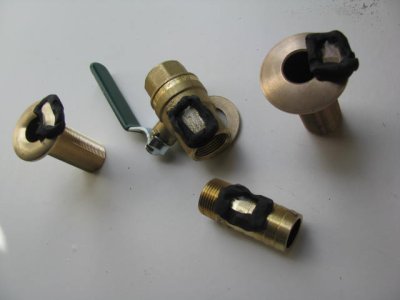jimi
Well-Known Member
I’m reluctant to put hydrochloride acid near bronze as my elementary chemistry would suggest a corrosion risk. My experience of the cleaning pads on the angle grinder I was lent last year showed no damage or erosion to the prop so I’ll stick with that idea. Thanks all for the ideas , partic those who pointed me in the correct direction for the cleaning pads. Ps there is a place for hydrochloric acid on a boat.. down the toilet 

